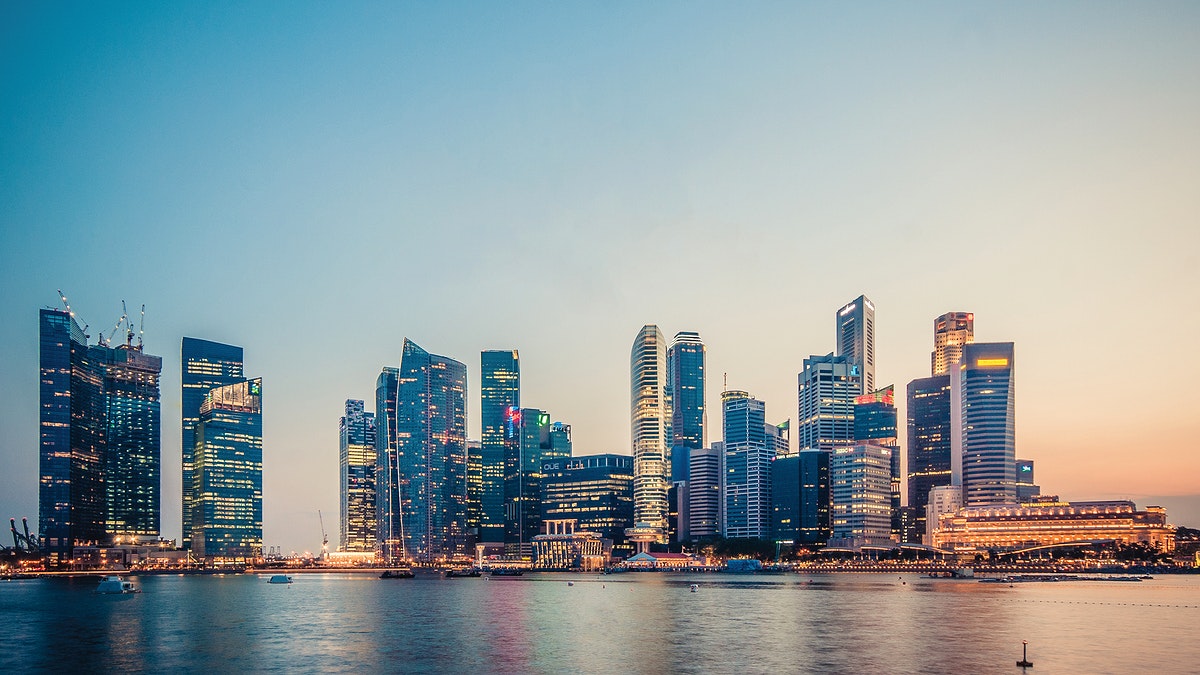Asia vis-à-vis the invasion of Ukraine

By Miquel Vila
22/03/2022
The West has presented a united front before the Russian invasion of Ukraine. Western audiences may believe that the world is rallying behind us against Russian expansionism. The fact is that we no longer live in a time when the opinion of the West could be taken as the opinion of the international community. The various reactions in East and South Asia are a good example of such a reality.
In this region, rather than strict distinctions we find different shades of gray. If we take a closer look at which UN members voted for the resolution condemning the Russian aggression, we can see that a majority of countries in the region voted for it. However, there are also significant abstentions. That doesn’t fit with the narrative of almost unanimous condemnation presented in Europe and America. Most reactions to the war by Asian governments don’t show a passionate defense of international law or the values of the liberal international order – although in some cases, liberal values are important. We see a different set of positions driven by particular agendas and interests.

Who is applying sanctions against Russia?
The governments that have gone beyond words and have coordinated with the EU and the US in sanctioning Russia are Japan, South Korea, Singapore, and Taiwan – which is not a member of the United Nations. These governments usually align with the West, have developed economies, and with the exception of Singapore, they have democratic systems.
Japan has made a U-turn from its previous policy of rapprochement towards Russia. Japan is significantly dependent on Russia for energy. Nevertheless, Tokyo has firmly condemned Putin’s actions, it has taken action against Russia, and has even raised the question of its territorial claim to the Kuril Islands.
There are two main reasons for the change in Japan’s Russia policy. First, the links between Moscow, Beijing, and North Korea. This means an expansionist Russia might become a problem for Japan’s national security. The second has to do with Tokyo’s remilitarization agenda and the aim of the Liberal Democratic Party to go beyond the constraints imposed in the aftermath of World War 2. Tokyo is paying close attention to the announcement by Germany of its military budget expansion. While PM Kishida has maintained a rather moderate tone on these issues, his predecessor, Abe Shinzo even mentioned the possibility of hosting nuclear weapons on Japanese territory – a question that has also appeared in Germany’s public debate. This has not gone unnoticed in China. The Special Representative of the Chinese Government on Korean Peninsula Affairs Liu Xiaoming complained on Twitter about the possibility of having nuclear weapons in Japanese territory.
South Korea is the other main ally of the US in the region. Like Japan, South Korea’s security interests play an important role in its position against Russia’s aggression. Moscow is an important ally of Pyongyang and in the UN North Korea was one of the few countries to vote against condemning Russia’s invasion of Ukraine.
Singapore’s attitude might seem unexpected because the country has usually taken a neutral approach to the confrontation between China and the US. However, Russia is not China. As the main financial hub in the region, Singapore cannot risk exposure to the areas of Russia’s economy affected by Western sanctions. On the other hand, the invasion of Ukraine sets a dangerous precedent for Singapore. A small independent nation with complex relations with larger neighbors.
Since the war began, Taiwan has been the elephant in the room. There are many parallelisms that could be made with a hypothetical Chinese invasion of the island. As a concerned party, Taipei needs this kind of behavior to receive broad condemnation. Taiwan is interested in being seen as an active member of an international community that it aims to be officially part of – a similar strategy was applied in regard to the pandemic. In the specific issue of Ukraine, it is worth recalling that during the last year Taiwan has had some diplomatic wins in Eastern Europe due to the region’s mistrust of the Sino-Russian entente.
These cases show how even among countries with close ties to the West, their response to the invasion of Ukraine is motivated by interests that go beyond the defense of the liberal international order.
The gray zone
That said, most of the countries in this part of Asia lie within what might be called the “gray zone”. Some countries have not condemned the invasion, or if they have criticized it they have refrained from doing so officially at the United Nations. Others voted against the Russian action at the UNbut have not imposed sanctions.
India stands out in this group. Due to its bad relationship with China, it is considered a closer partner of the US. It is a key piece in Washington’s security architecture plans for the Indo-Pacific. It is a member of the QUAD, partnering along with Australia, Japan, and the US to contain China.
Nevertheless, India is also close to Russia. They have enduring commercial links, especially in the arms trade. Both countries have been working together in the BRICS’ framework and share security interests in Central Asia, as in Afghanistan for example. Moreover, Modi and Putin have built a close personal relationship. India opted for abstention in the motions condemning Russia in the General Assembly and the Security Council.
India has never aimed to become a mere component of a Western-led geopolitical sphere. New Delhi is showing its independent foreign policy with Russia and Ukraine. India opted for abstention in the motions condemning Russia in the General Assembly and the Security Council.
Struggling with sanctions, Moscow has offered an advantageous oil and other natural resources deal with India, and New Delhi is thinking about it. India is in dire need of energy resources. The fact that India is unwilling to join the sanctions may mean an obstacle to the Western campaign to isolate Moscow. At the same time, the US would rather not risk its relationship with a key partner in the Indo-Pacific by punishing India for keeping trade open with Russia.
Beyond Singapore, another ASEAN country that may play a relevant role in this issue is Vietnam. Hanoi might not be thrilled by the idea of a larger neighbor attacking a smaller one. Vietnam still has recent memories of the invasion by China in 1979. Indeed, in recent years tensions with Beijing have driven Vietnam closer to Washington. Nevertheless, Russia and Vietnam have an important relationship. Historically Hanoi’s communists supported Moscow during the Sino-Soviet split. Nowadays, Vietnam’s army depends on Russian arms provisions. The rest of ASEAN has taken rather neutral stands, even though most of its members condemned the Russian action at the UN. Some, like Myanmar, are also facing economic sanctions. That means that ASEAN is unlikely to take a stand trying to isolate Russia.
Russia’s friends
North Korea takes the lead among the countries that have taken a clearer stand for Russia. As mentioned earlier, North Korea is one of the few countries that voted against condemning Ukraine’s invasion. It is also the country that is facing the most similar situation to what Putin’s Russia is facing with the sanctions.
The country gathering the most attention and speculation is China. Beijing has a “friendship without limits” with Moscow, and it is clear that Vladimir Putin and Xi Jinping have a close relationship. However, it seems that Beijing does not want to risk more than what is absolutely necessary. It has taken a measured ambiguity regarding Ukraine. One could even argue that China is not especially happy with the situation unleashed by Putin. Beijing doesn’t want its companies to be targets of Western sanctions.
China’s abstention in the UN’s Security Council and General Assembly has opened the door to talks about Beijing distancing itself from Moscow. These hopes might be overrated. China’s FM Wang Yi has shared Moscow’s narrative of the conflict. A decline of Russia might give some room for Chinese interests in Central Asia. Russia’s isolation from the West could be an opportunity for Chinese business in the long term.
China is unlikely to do more than what would be strictly necessary for Russia and will refrain from openly providing Moscow with military aid. But, if the West manages to topple Putin, who guarantees that Xi won’t be next? Taking a global perspective, if Russia falls, the Chinese position would be severely weakened. In the future things may change, but at the moment, Xi Jinping has too many eggs in the Russian basket to allow it to break apart.
In paying attention to how most countries in East and South Asia are approaching the war in Ukraine, we should understand that we have not gone back to the time when the world rallied behind the West. If the EU and the US want to have a successful strategy for Moscow, they should bear in mind that we are still living in a multipolar world. During the last few weeks, driven by the feeling of unity against Russia, Western commentators are generating a state of opinion that reminds me of the delusional hubris of decades ago. A global perspective of the reactions towards Russia’s invasion of Ukraine calls for a less triumphalistic view of reality.
Miquel Vila is the Executive Director of the CGI. He is specializing in geopolitics and geoeconomics of China and the Indo-Pacific region.


